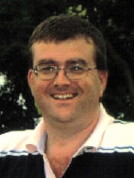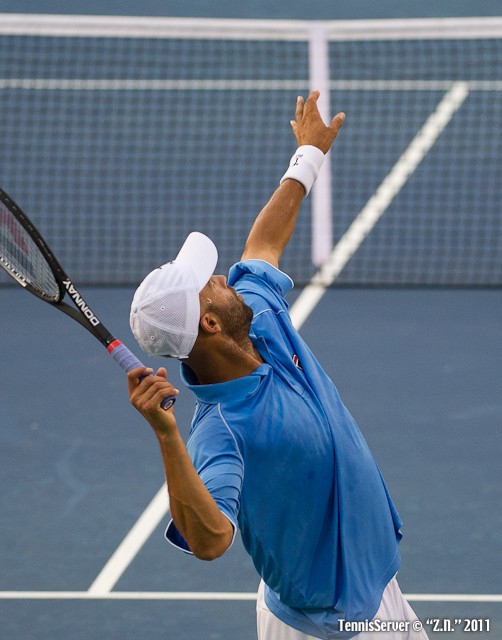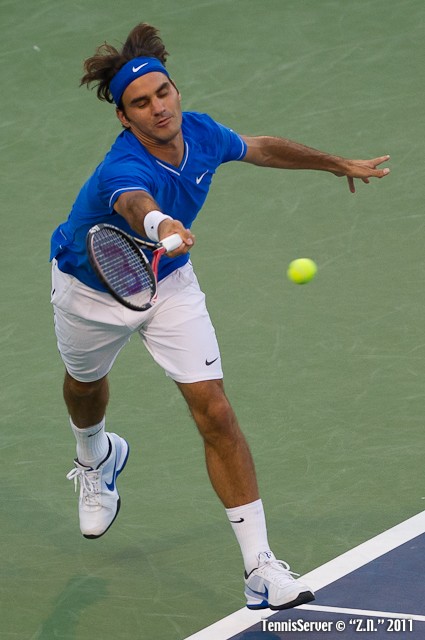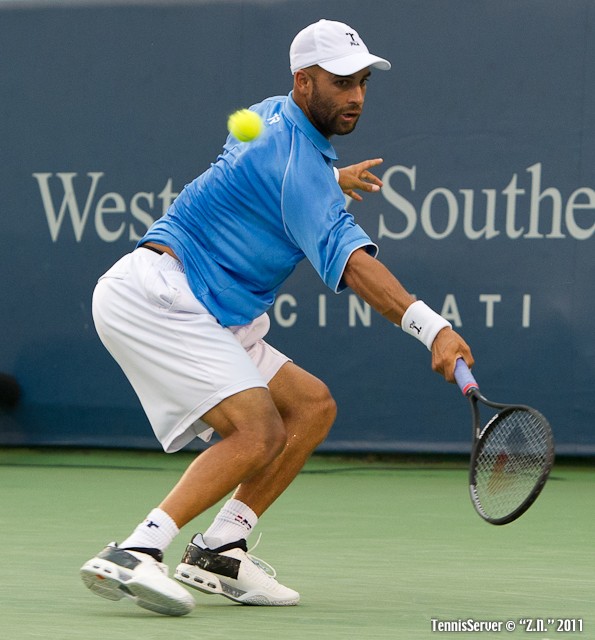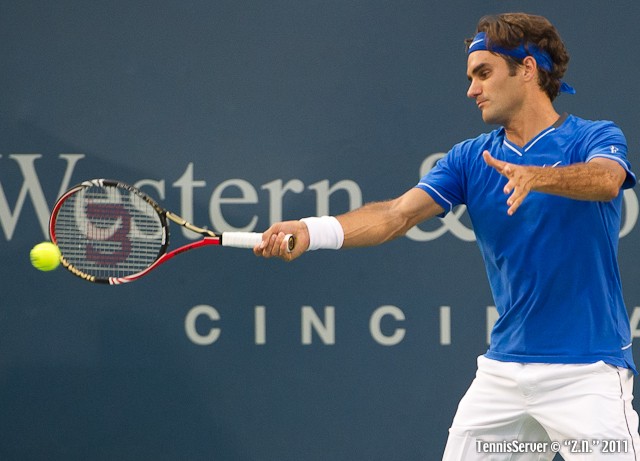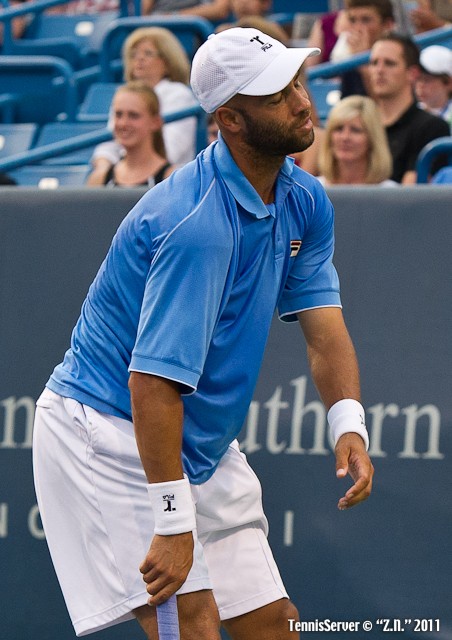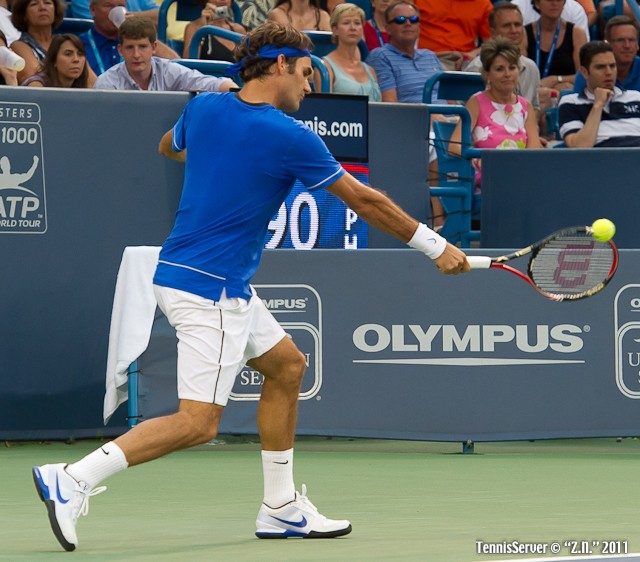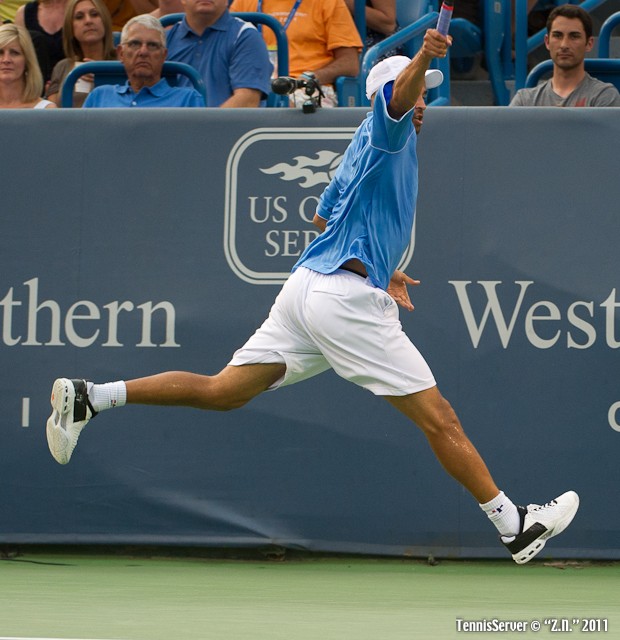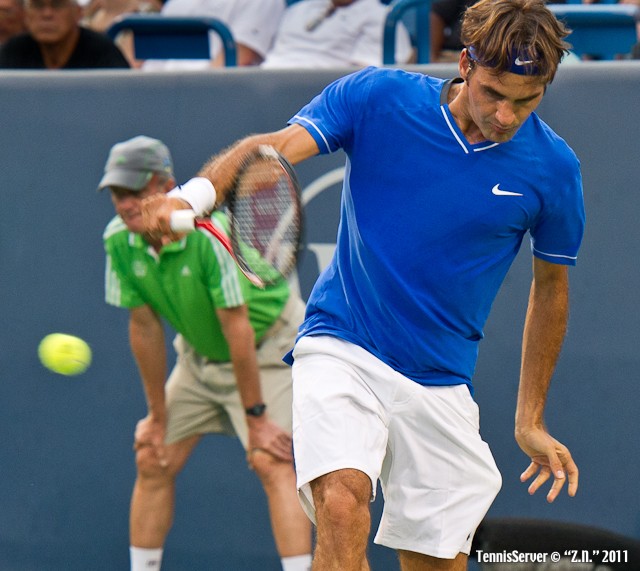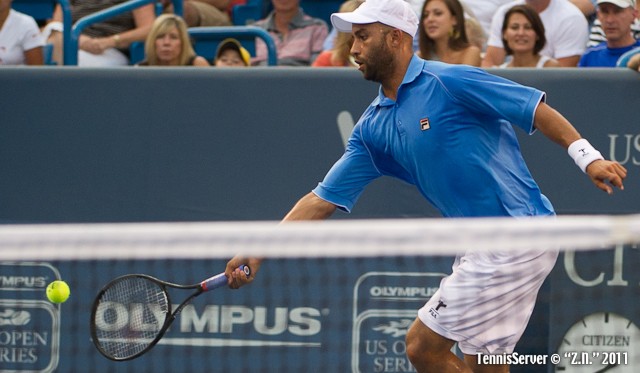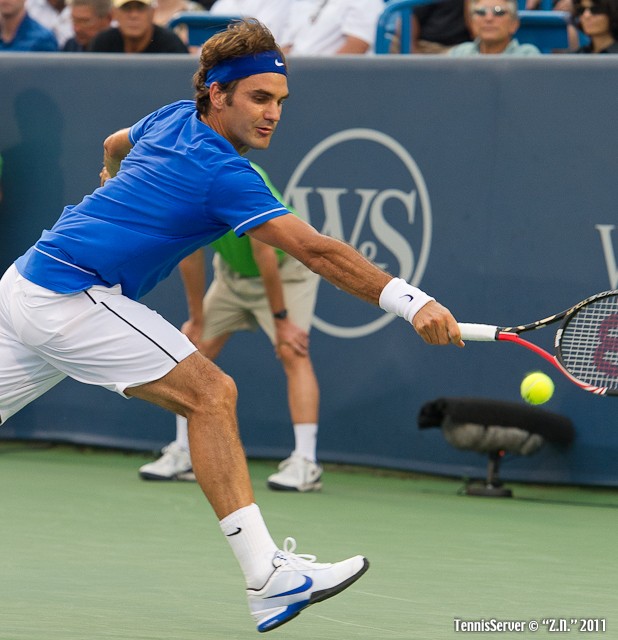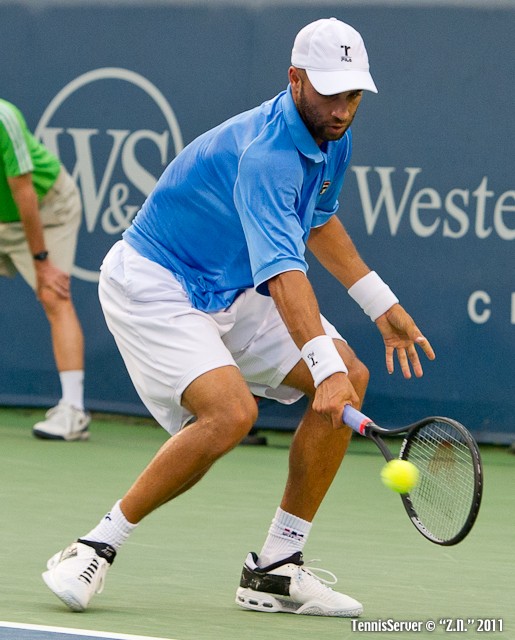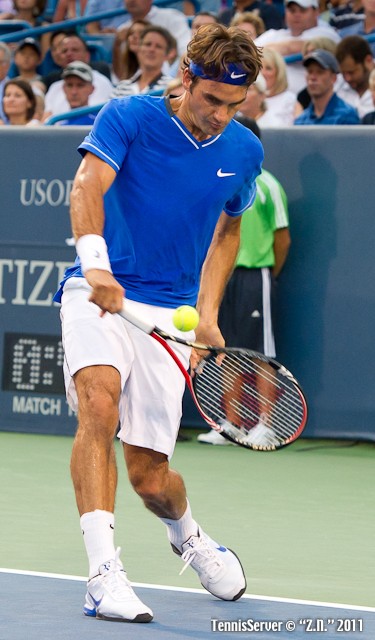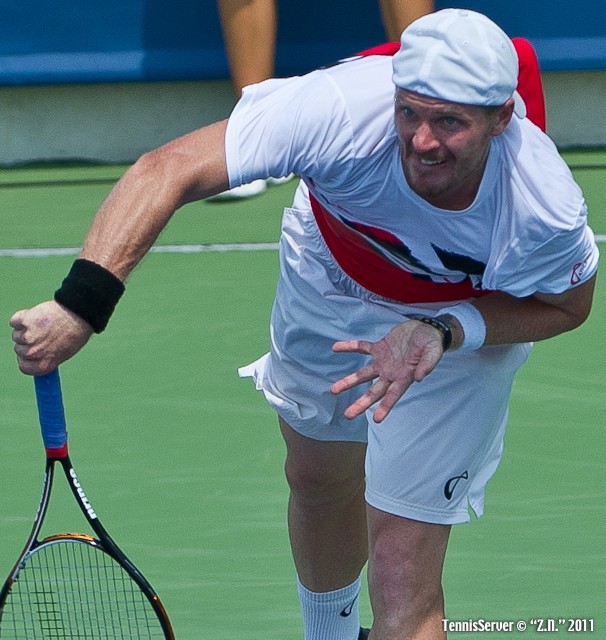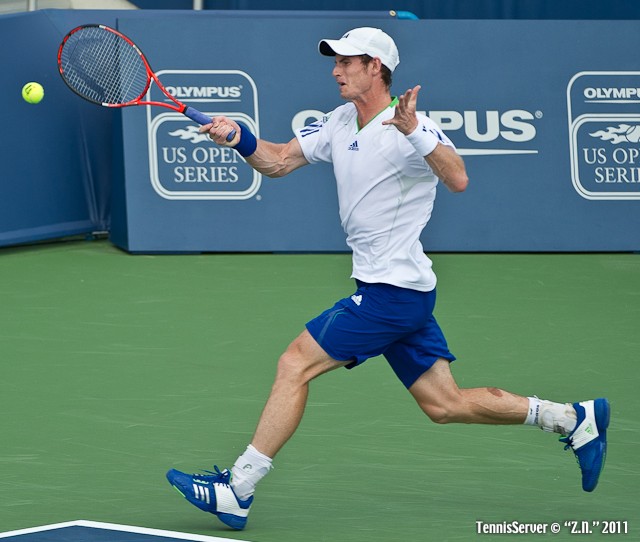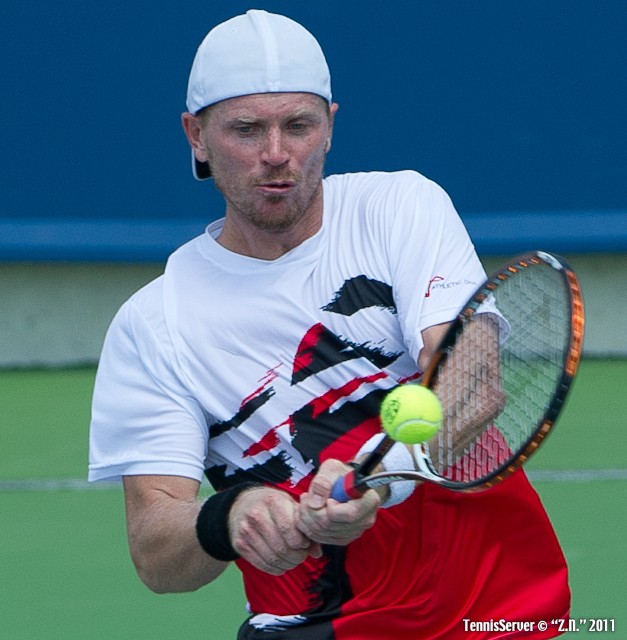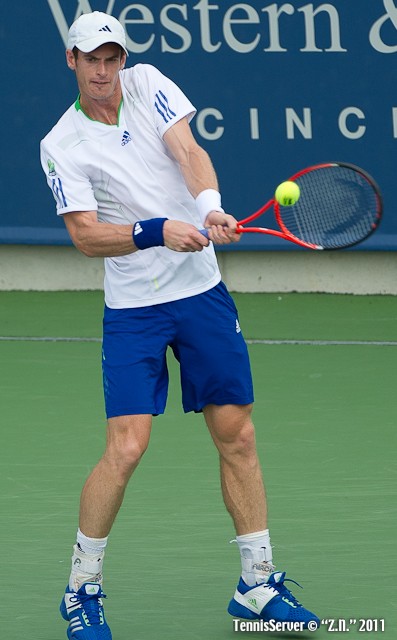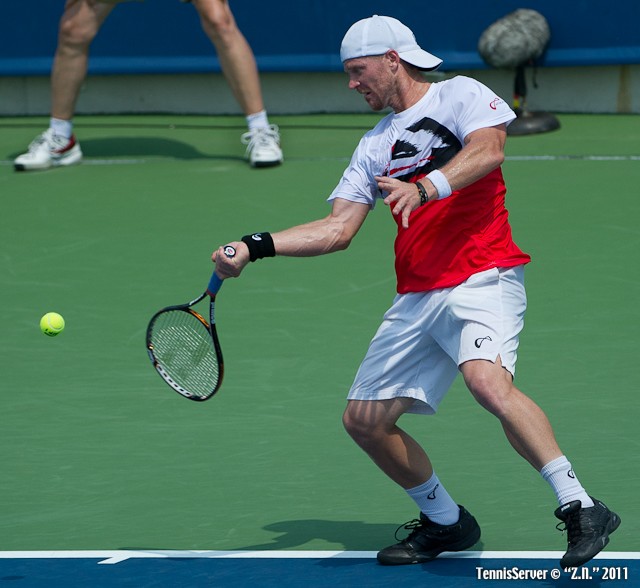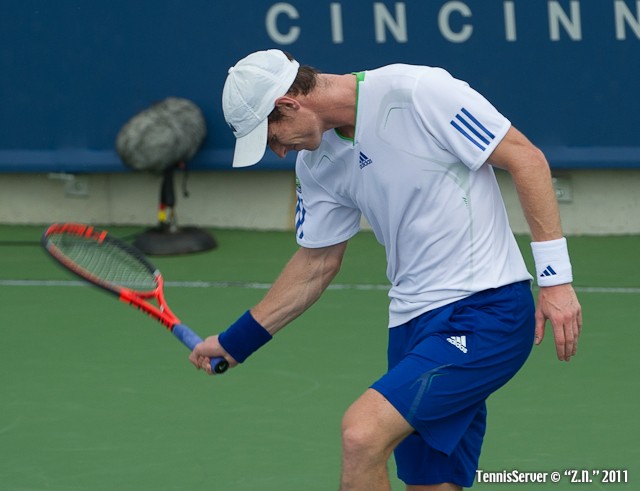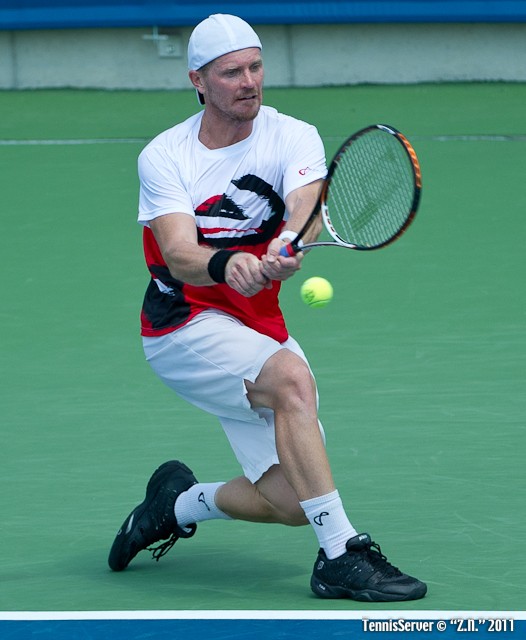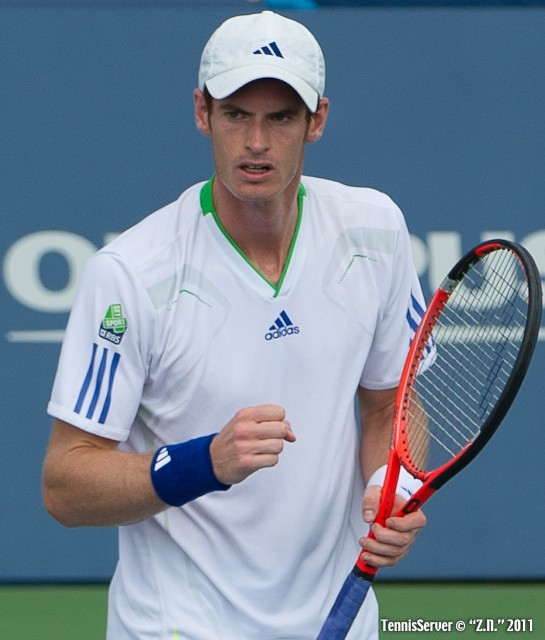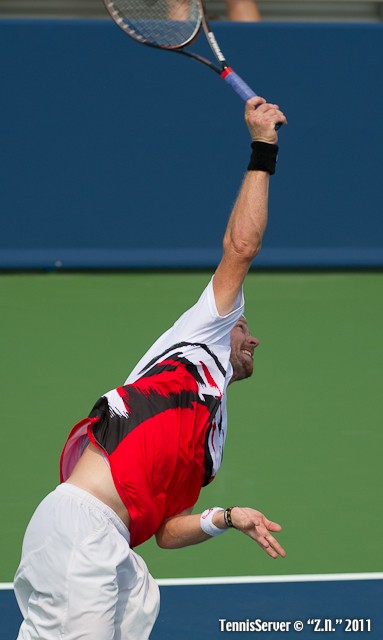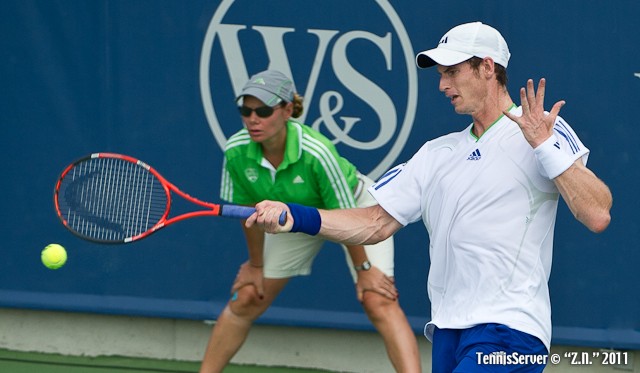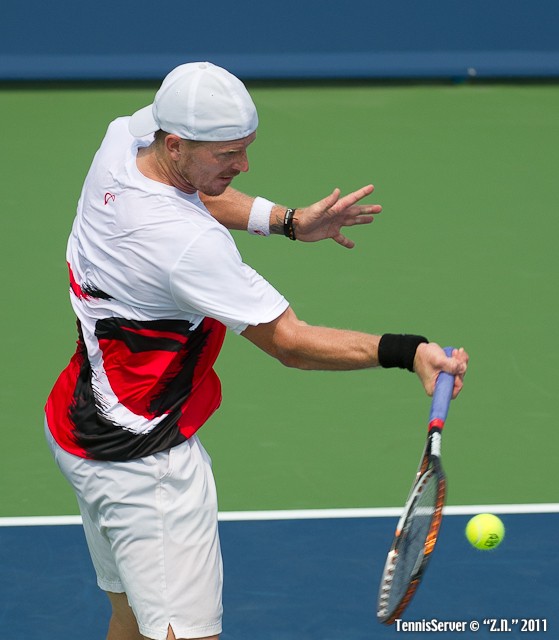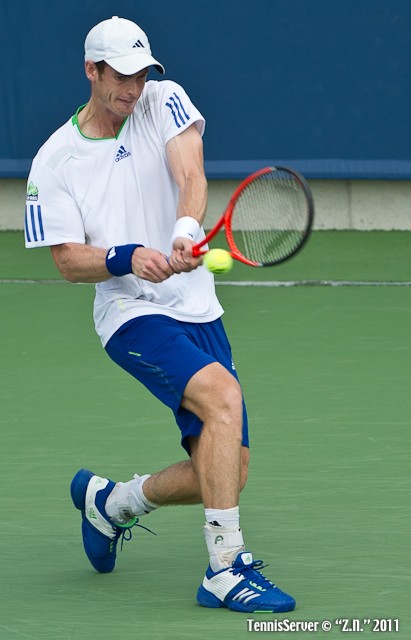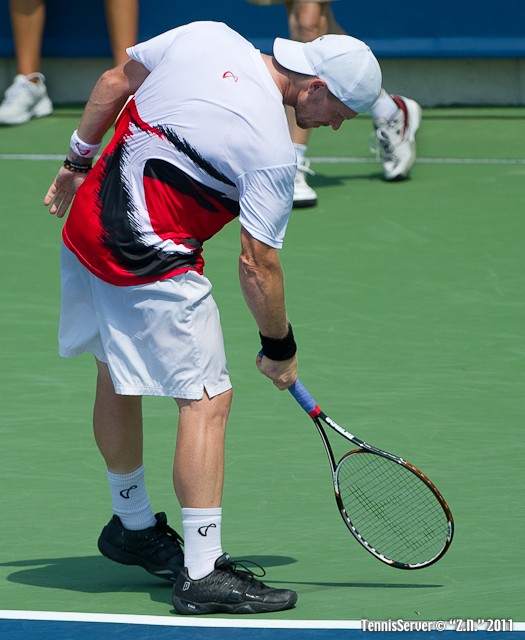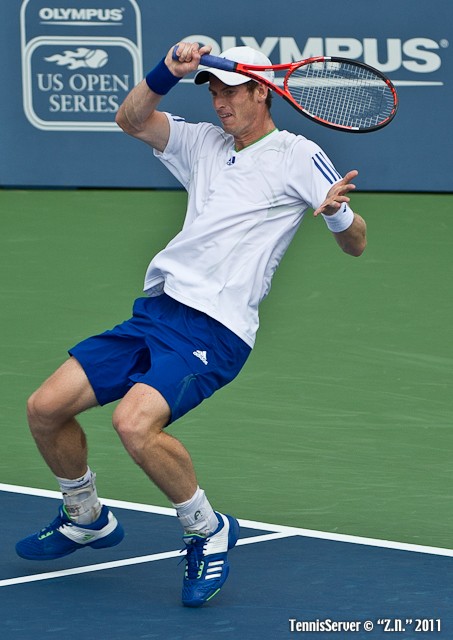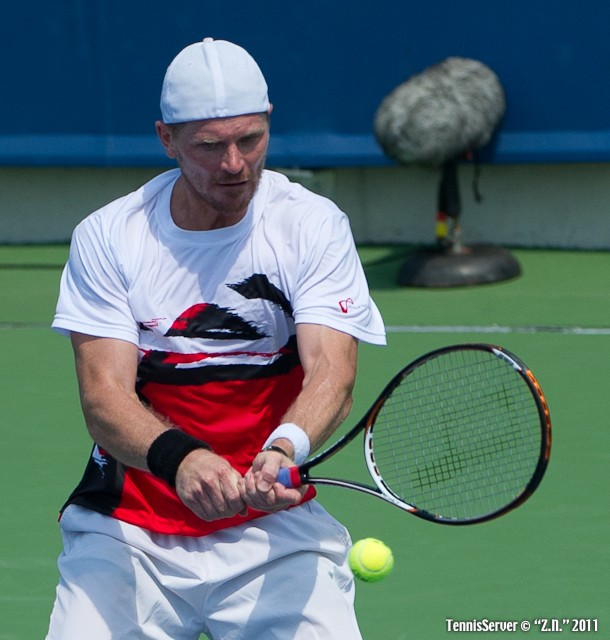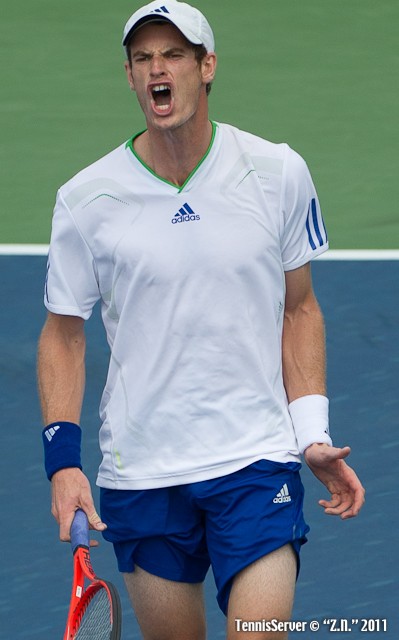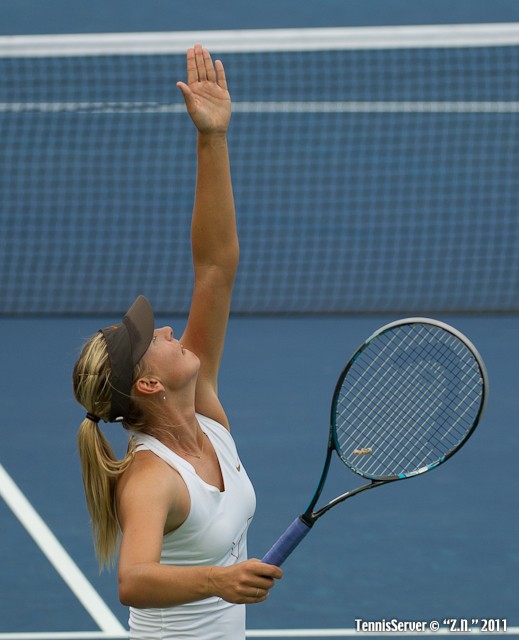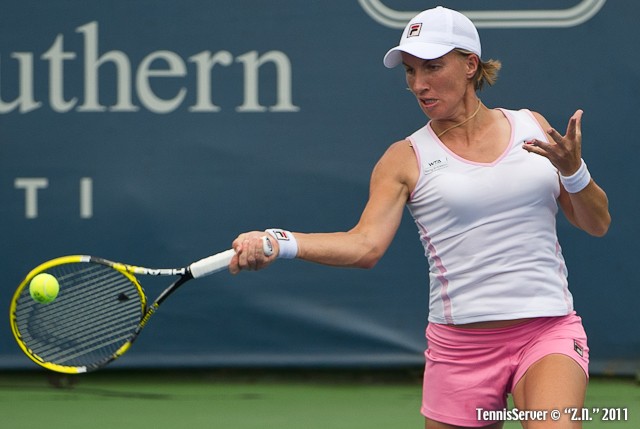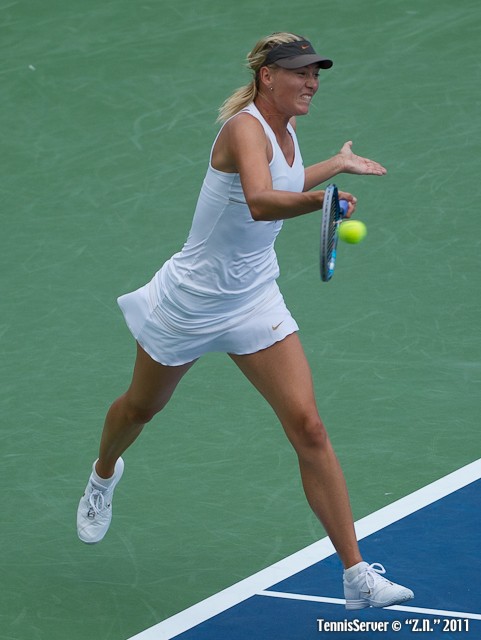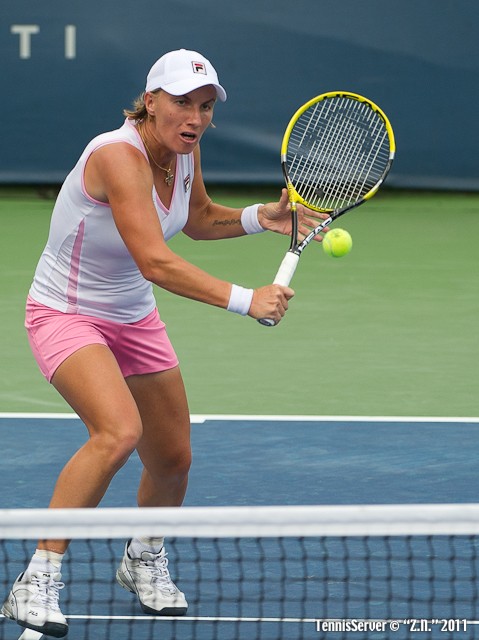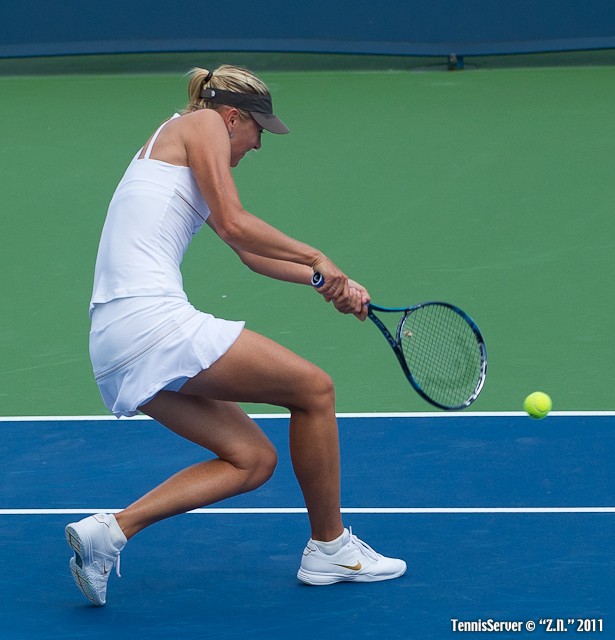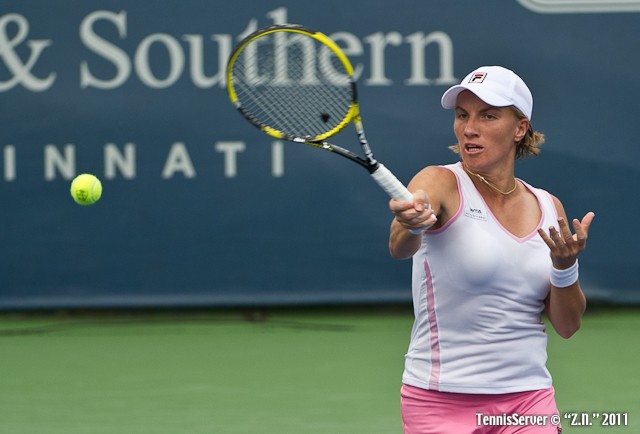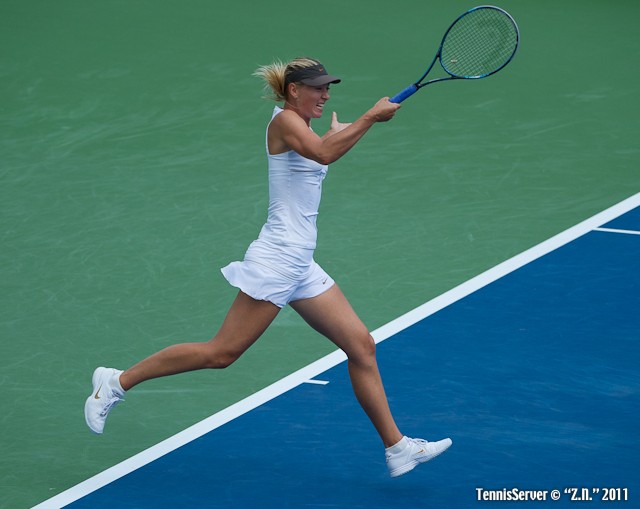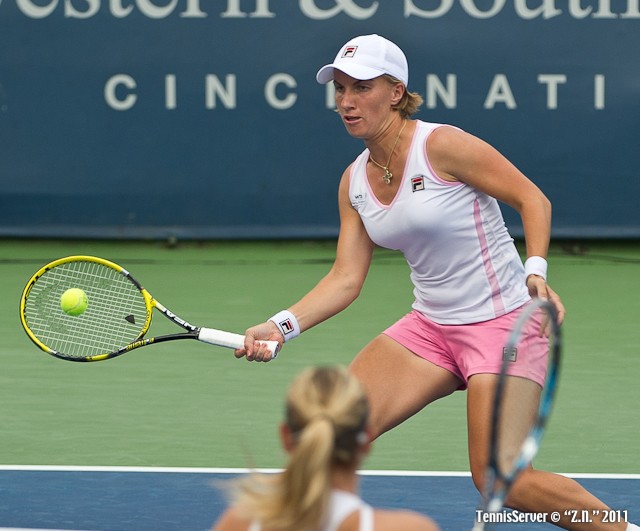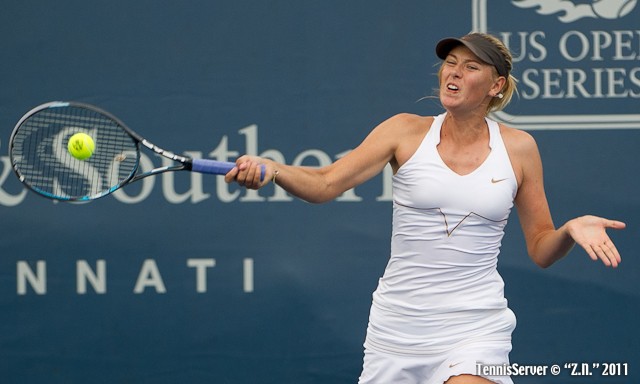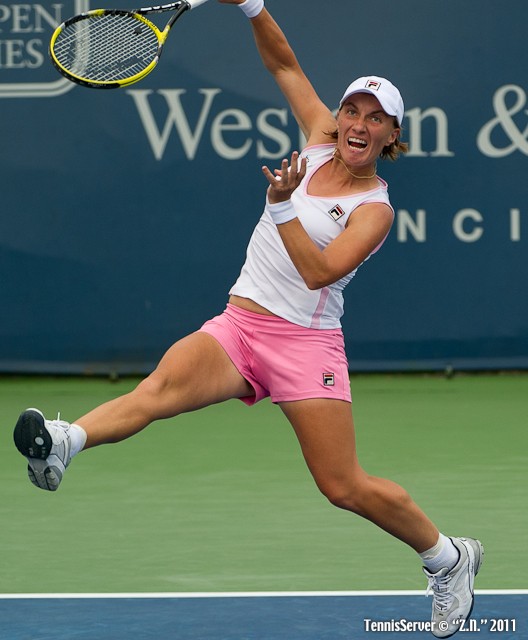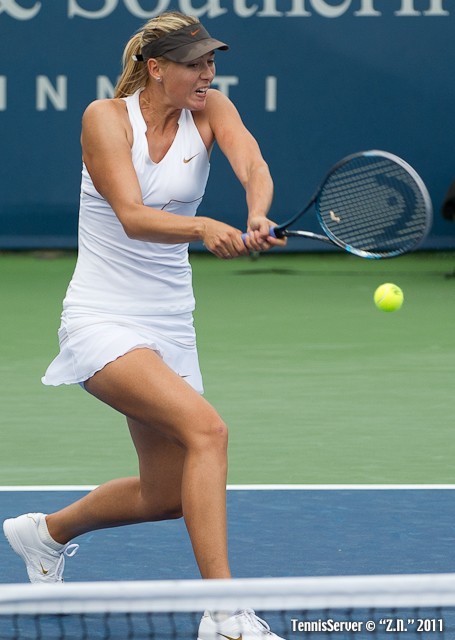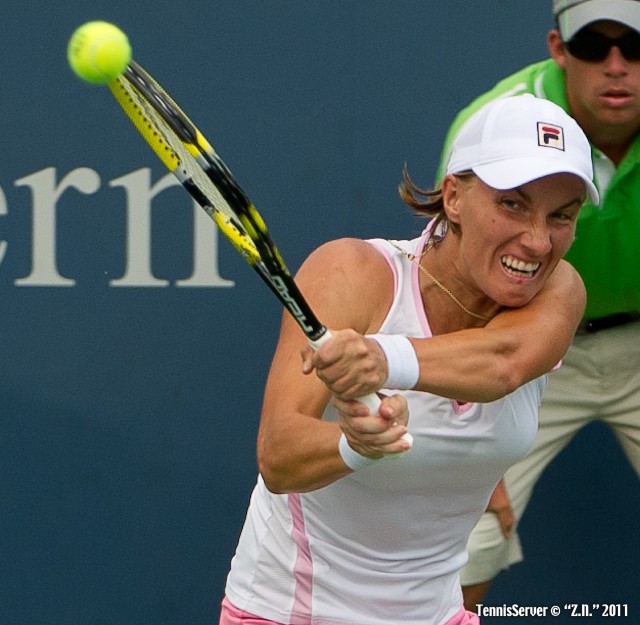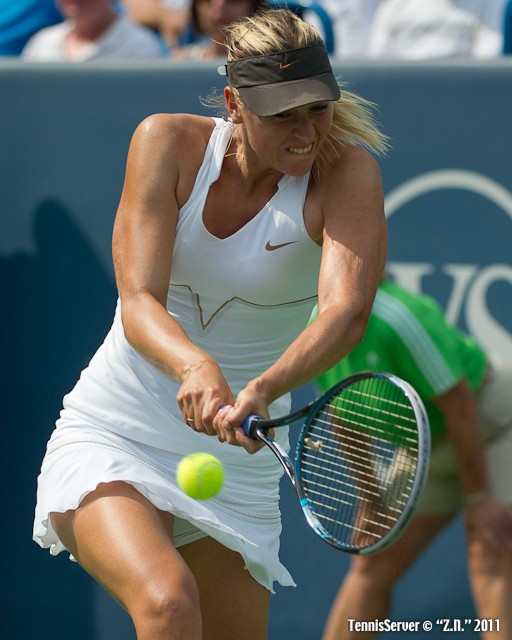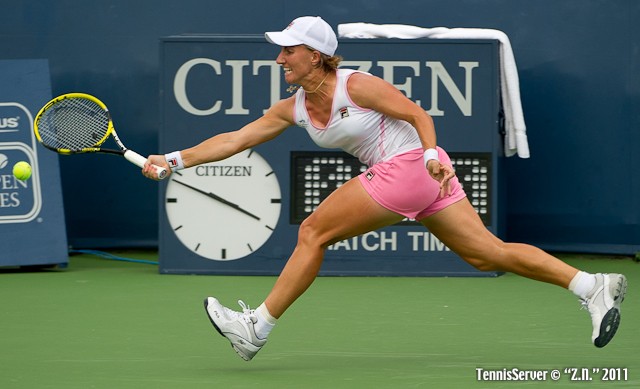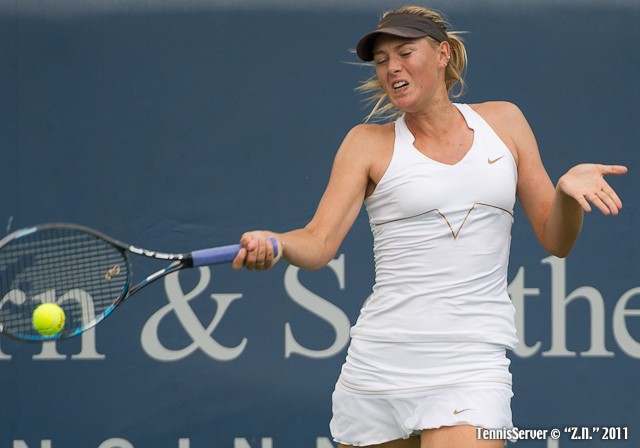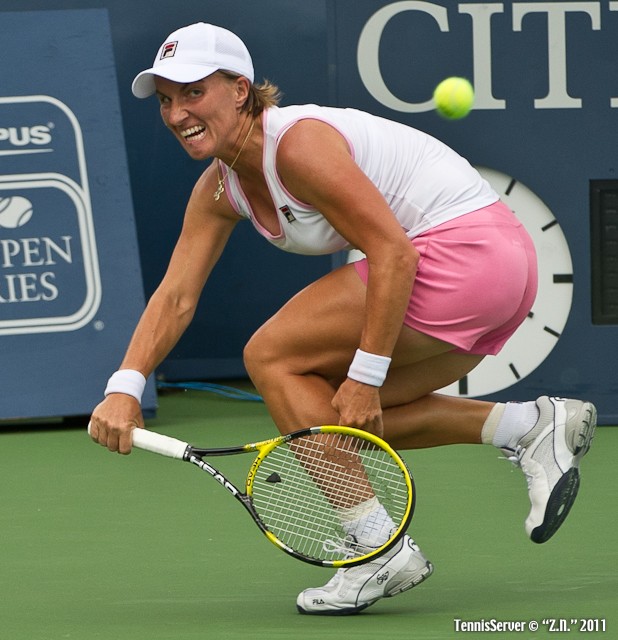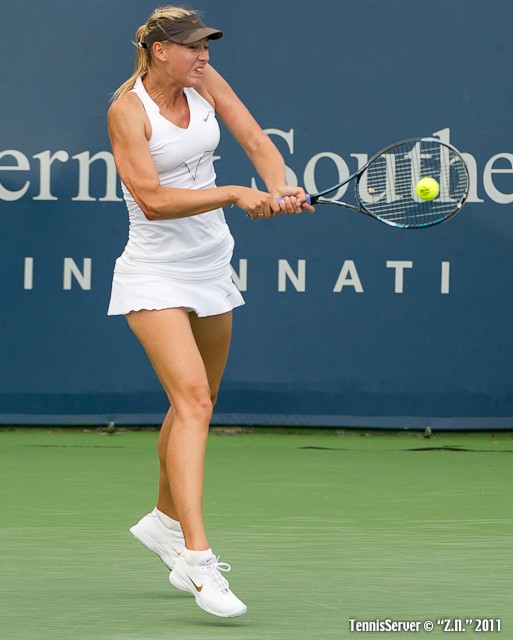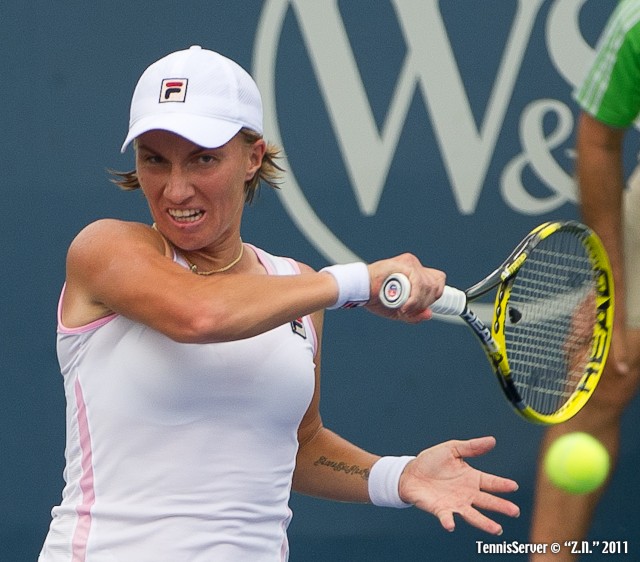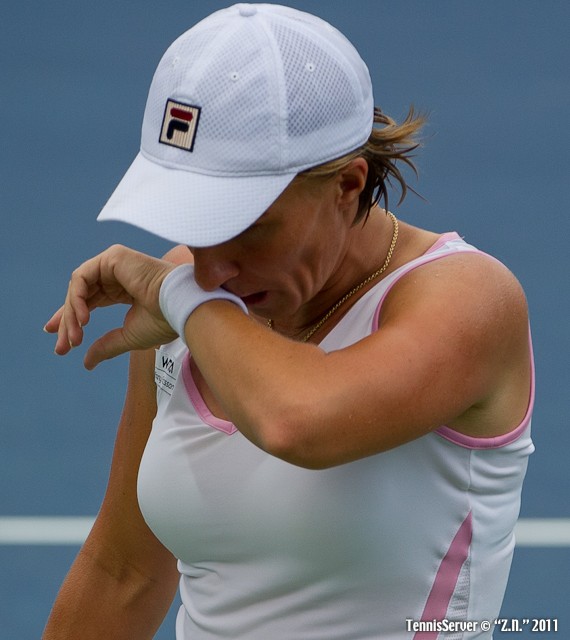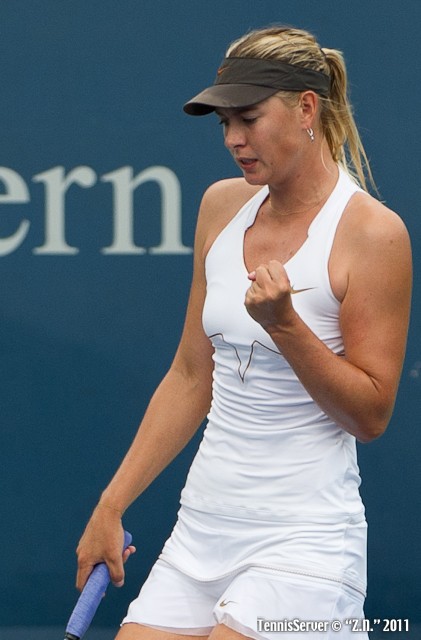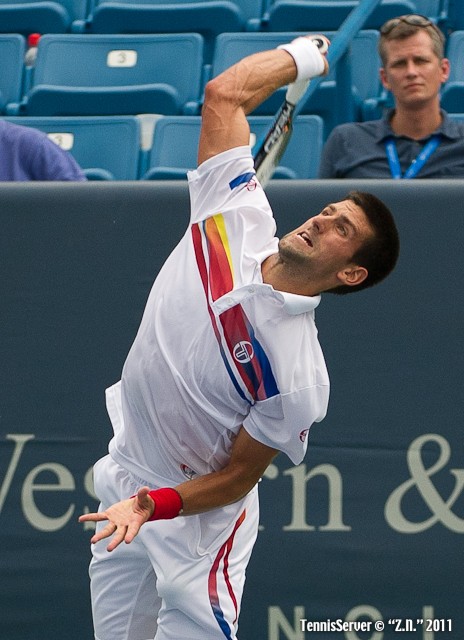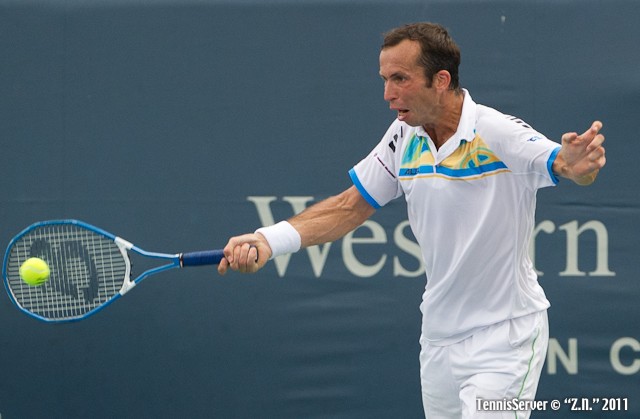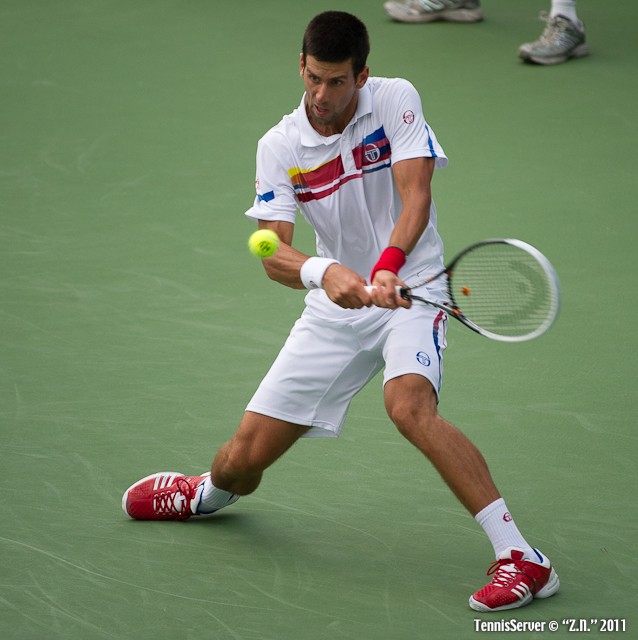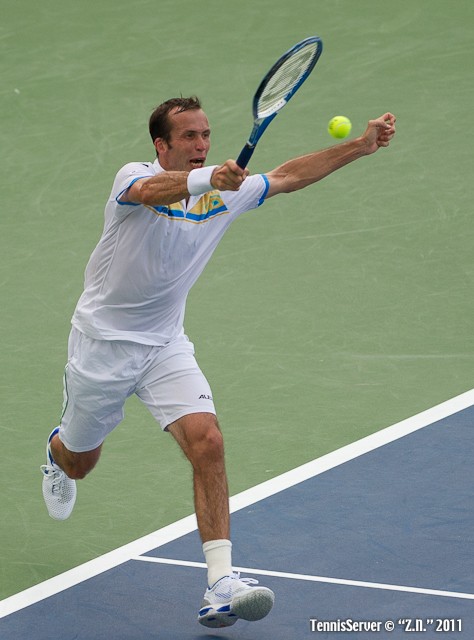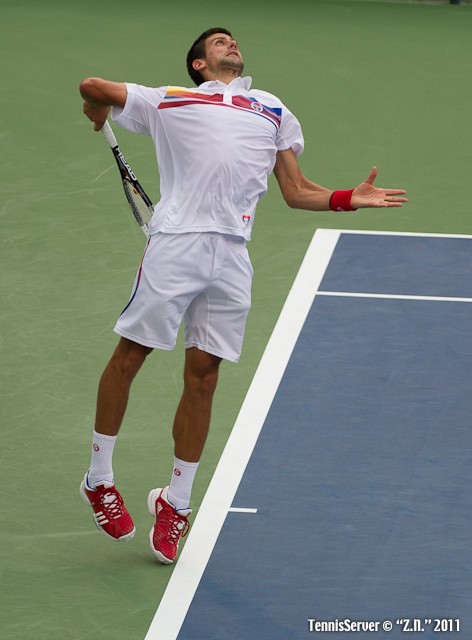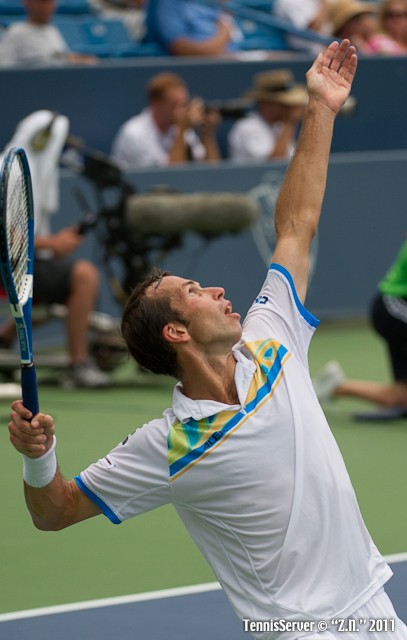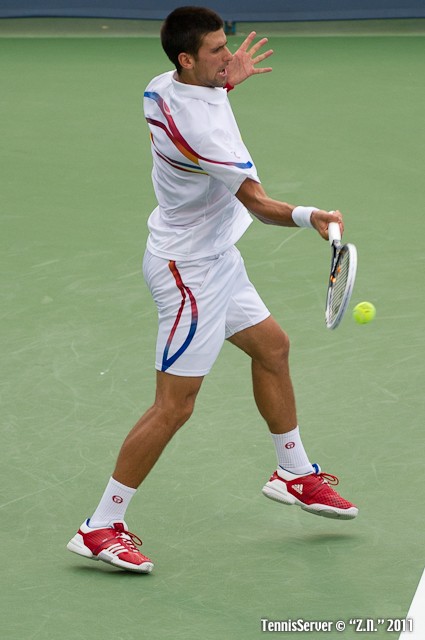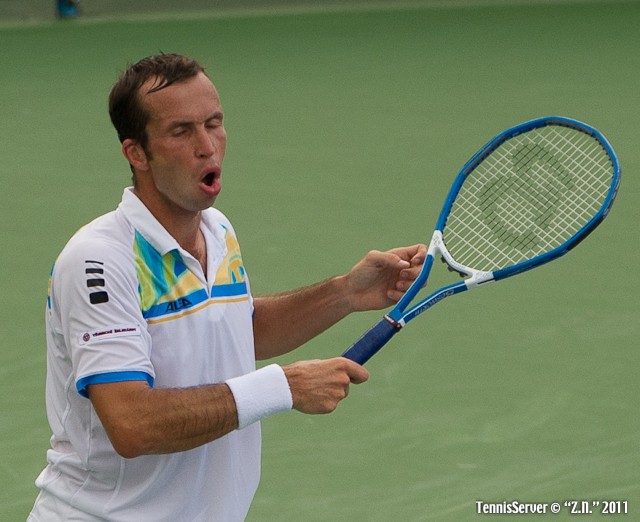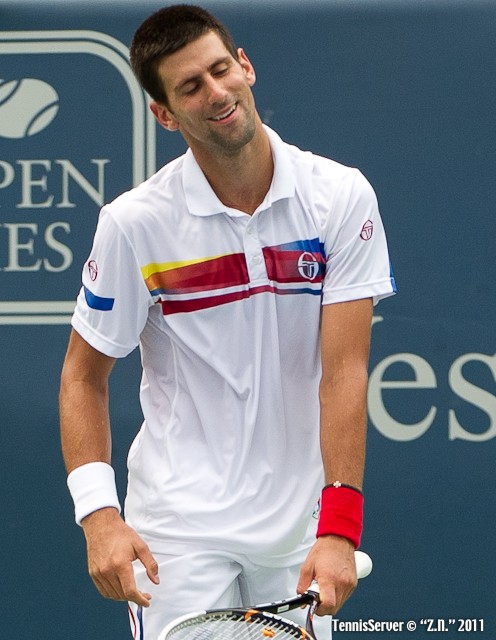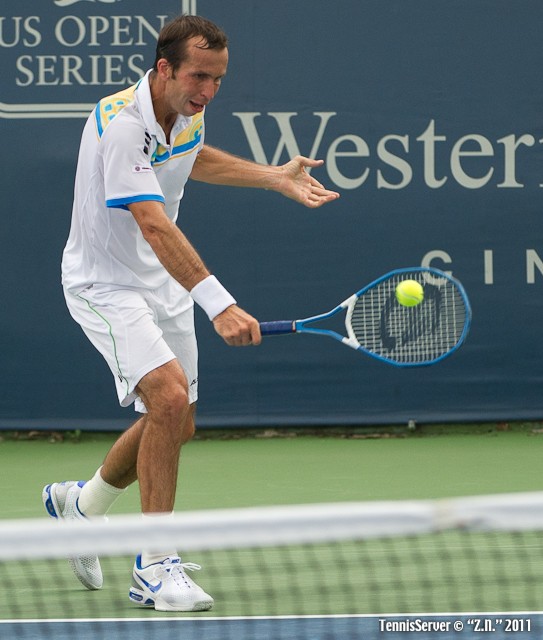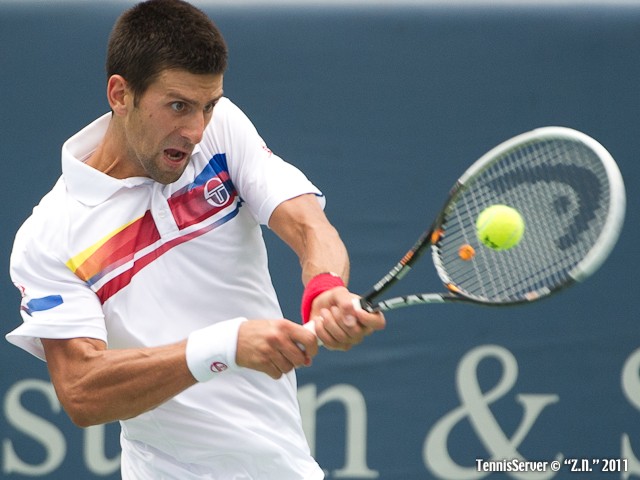Nadal Wins Spanish Civil War On Center Court (Round 12); Jankovic Outlasts Schiavone In 3 Tough Sets
The Spanish Civil War has been over with for 72 years (1936-39) but that might be news to Thursday's feature match between Spaniards Rafael Nadal and Fernando Verdasco. They had met on 11 previous occasions with Nadal prevailing each time. Most (9) of the matches went in straight sets. Their most competitive encounter prior to today came back in the semifinals at the 2009 Australian Open which Rafa won in five sets, 6-7 (4), 6-4, 7-6 (2), 6-7 (1), 6-4. As far as their best of three-set history goes, this one was easily their best match in the rivalry. Nadal won this Round of 16 match in about three hours and 38 minutes, 7-6 (5), 6-7(4), 7-6 (9). It is exceedingly rare for all three sets (in a best of three format) to go to tiebreakers. In fact, this was only the 8th time in the Open era here in Cincinnati that this has happened (men's singles matches only). When you consider the hundreds of matches played here since the Open era started, that statistic itself is rather amazing.
Equally amazing was the fact that Nadal was also entered in the men's doubles tournament with fellow Spaniard and close friend Marc Lopez. The ATP Tour has a rule that singles players entered into a doubles tournament must play their singles match before the doubles and that the doubles match cannot begin until the player has had "suitable rest". I asked Greg Sharko, the ATP Tour Media Communications Director for clarification and he said that generally speaking, "the singles player should given at least an hour's rest before they start doubles play unless they want to go on court sooner," Sharko noted. I then asked if there was any additional consideration given for a player who had played three sets as did Nadal today and he noted that in those cases, the rest period is extended to 90 minutes.
The weather here has not been nearly as hot this year as it has been in years past. But that is easy to say when I am watching tennis rather than playing it and doing so from either a shaded area or an air-conditioned press box! Still, Rafa exerted a lot of energy today between both matches which caused him to spend close to five hours on court. Mardy Fish, who defeated Richard Gasquet in straight sets (7-5, 7-5) and is Rafa's next opponent in the quarterfinals tomorrow at 1 pm, thought that he might pull out of the doubles to rest for his singles match. Rafa said that thought never crossed his mind. "For me, I did not consider that to be an option," Nadal said. "I am playing with one of my best friends. He came from Spain to play the doubles. If I don't go on (the) court today, he doesn't have the points or the prize money of the second round. So, I never considered that as an option, even though I was tired. That's what happened. I had to play, and I tried my best. We lost. I go home well, not home, but to the hotel to relax a little bit and try to be competitive for tomorrow," Nadal said with laughter. Actually, Lopez played with Nadal in Montreal and lost in the first round there but since he (Lopez) plays doubles exclusively, Nadal's point is valid. While Rafa could have easily cut Marc a check to cover his losses had he (Nadal) pulled out, it is rather obvious that no player gets better by not playing and you can't replace on-court experience at this level regardless of how hard you practice. So I have to give Rafa a lot of credit for living up to his obligation to play in the doubles since he chose to enter that tournament in addition to his singles play.
While I am on the subject of doubles, I received a note from a reader last night (keep the feedback coming!) asking me to cover more doubles action since television and other media nearly ignore that competition. I would love to write more about the doubles but am constrained by the fact that the press box closes one hour after the last match has been played. In addition to watching tennis, I spend a lot of time participating in player interviews, doing some research on both men's and women's matches and so forth. Certainly, I am not complaining; rather, just trying to explain why I don't usually have as much time as I would like to write about doubles. Also, I try to see as much live tennis as possible because I take notes during matches at key moments so I can later ask the players specific questions that might help the amateur player with their own game. These are questions involving shot selection, strategy, mental toughness and other aspects of the game that players are most interested in. Being able to do that requires me to watch as much live tennis as possible and therein lies the problem: time constraints!
It used to be that the press box was open until the last member of the media left the facility and there have been years here where I have stayed until 3 am, drove back to the hotel and then back here again by the 11 am start time for the following days' action. I later found out that some of the press box assistants here actually work their regular jobs while volunteering to help us out in the press box so the end result was that they were not getting any sleep. Because of this, the press box closes an hour after the last match ends. I will do my best to cover more doubles action in the later rounds if time becomes available. But I wanted to try to communicate why I typically don't have as much doubles coverage as some of you might want. Having said all that, the Bryan Brothers just won their first match of this tournament 6-2, 4-6, 10-1. Nadal and Lopez lost their doubles match 4-6, 2-6 (and I actually caught most of their first set in person prior to reading the feedback about doubles coverage) to Mahesh Bhupati & Leander Paes who have re-teamed for doubles after playing with other partners for the last few years.
As you might expect, in a three-set match that goes to tiebreakers, the difference between winning and losing was only a few points for the entire match. In somewhat of a statistical oddity, Verdasco actually won more points than did Nadal (128 vs. 123) despite losing the battle. Both players served exceptionally well with first serves above 70% (78% for Verdasco and 70% for Nadal) and points won off their first and second serves was also very, very close. Nadal had more break points against his serve (10) but managed to save six of them whereas Verdasco was able to save only two of the six break points against him. The return games were also very solid and I think the outcome turned on their plus / minus ratings. Verdasco just hit far too many unforced errors (51) than did Rafael (25). Fernando had a -3 on plus minus (48 winners, 51 unforced errors) while Rafa was a -6 (25 winners, 31 unforced errors). But keep in mind that when you hit the errors is nearly as important as how many you hit. Nadal has a reputation as an excellent returner, which puts pressure on your service game and that showed in Verdasco's number of double faults (7) while Rafa hit only 2.
Fernando was in an understandably sullen mood in the post-match press conference. At first, his answers were very short and did not provide much information to go on but then he became a little more forthcoming which definitely helped. One person observed that a lot of points were ending on errors and they wondered if that changed his approach? "Well, there are more errors because he pushes you to make them," Fernando noted. "He plays that ball very high and deep most of the time and he wanted to try to take away my forehand, because that's the weapon I typically use to hurt him. So he just returned with lobs trying to be deep so I cannot really attack and be offensive and it has been like that every time we play. He's the defensive player; I'm the offensive player. When you try to make winners, you make errors. When you just try to put the ball in, you don't make winners and you don't make errors," Verdasco opined. That was the extent of his analysis as you could tell that he just wanted to get out of there as quickly as possible. He has now lost to Rafa 12 straight times and that, in itself, has to be incredibly frustrating.
Rafa was a little more forthcoming with his responses, but that's to be expected since he won the match. But still, he saw that there was a lot of room for him to improve his play before trying to defend his U.S. Open title from a year ago. "It was (an) important victory for me and it was not an easy one to get. I think I played well in spots (but not consistently), especially (in the last set where he had a) 5-1 (advantage) in the tiebreaker (which he later won 11-9 but surrendered four straight points to even it at 5-all at one point). I played a few really bad points," Nadal observed. "I'm very happy I'm through; I'm in the quarterfinals. It's (a) positive result for me. I (wish that I didn't have to) spend (three) hours on court (in my singles match); (it would have been better for that match to last) one hour less than what I (did but overall it) was positive," Nadal said. Asked to evaluate Mardy's game, Rafael noted that "He's a very good player and did very well in Wimbledon (as well as) last week in Montreal. He's doing very well here. It's going to be a very difficult match tomorrow. He's aggressive player, has a fantastic serve and a very good volley. He's also moving much better than before from the baseline and with less unforced errors. So he's a very dangerous player. What's his ranking? He's No. 7 in the world? So you cannot expect have an easy match against a No. 7 player. I think that he is one of the most dangerous players on the tour," Nadal thought.
On the women's side, Jelena Jankovic prevailed in three tough sets against Francesca Schiavone. I saw this match in its entirety (rather than the James Blake / Roger Federer match which was over with fairly quickly, as I expected, in a 6-4, 6-1 encounter). Schiavone made way too many unforced errors (51) but hit only 29 winners for a negative plus / minus of -22 as compared with Jankovic who hit 22 winners against 34 unforced errors for a -12 plus / minus. After Jankovic was broken at 4-3 in the first set, she called her coach to the court. I asked what he told her but she was a bit evasive and talked about why she called for his assistance instead. "I was playing well in the first set and I was up like 4 Love, and then I kind of stopped paying playing my game and I started being a little passive, letting her play her tennis (rather than dictating play on my terms)," Jankovic said. "When she takes control and starts spinning those balls around the court, she gives you a hard time. So I let her play her game, and I was really struggling at some points. First set I did pretty well, I won 6-3 but then I was serving for the match at 5-4 in the second and I got frustrated. I hit a good serve at 30-All and had an easy ball (but) she read me and just played a lob over my head," Jankovic continued. "She won that set, and I was really physically exhausted, and mentally as well. It took a lot out of me, you know, to win this match overall and to be out there for about three hours. And especially against Francesca; I mean, she's one of the greatest fighters that we have on the tour. It was not easy to beat her at all. I just had to really give my all, especially at the end. I was fighting for every point, and somehow I did it," Jankovic said.
Another reporter asked Jankovic whether, since both players were kind of emotional on court, their emotionalism factors in to how the match transpired? She laughed and replied, "Oh, my God. I think the crowd had a lot fun watching that kind of a battle that we had. It was kind of amazing, playing in this kind of an atmosphere where we almost had a full house. There was a lot of crowd noise and it was a big crowd (besides). There was a lot of support for both players, it was kind of amazing. And especially both of us, we are emotional and show our emotions and frustration, our happiness when we win the points. So it was, you know, on both sides it was quite exciting. The crowd could see different kinds of emotions and different kinds of, you know, feeling that we felt inside. I'm one of those that I show everything. You can see if I'm not feeling good, if I'm feeling good, whatever it is. The crowd can see that and can enjoy that. I think they had a lot of fun watching this kind of battle. They got their money's worth, that's for sure!" Jankovic said, laughing.





 You will join 13,000 other subscribers in receiving news of updates to the Tennis Server along with monthly tennis tips from tennis pro Tom Veneziano.
You will join 13,000 other subscribers in receiving news of updates to the Tennis Server along with monthly tennis tips from tennis pro Tom Veneziano. 